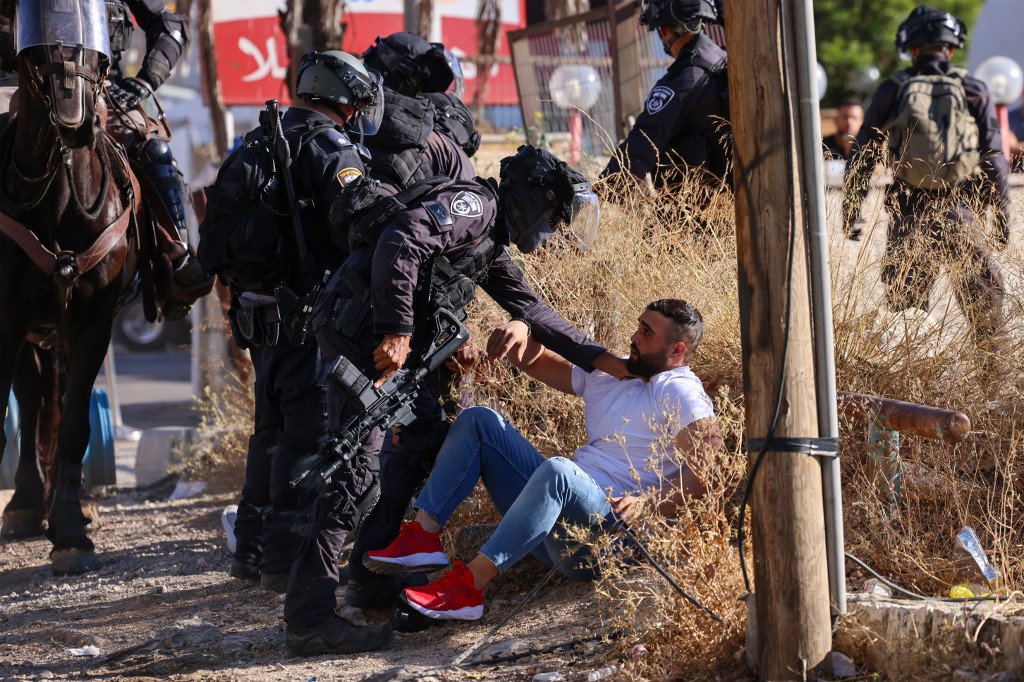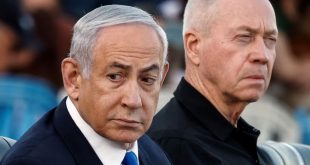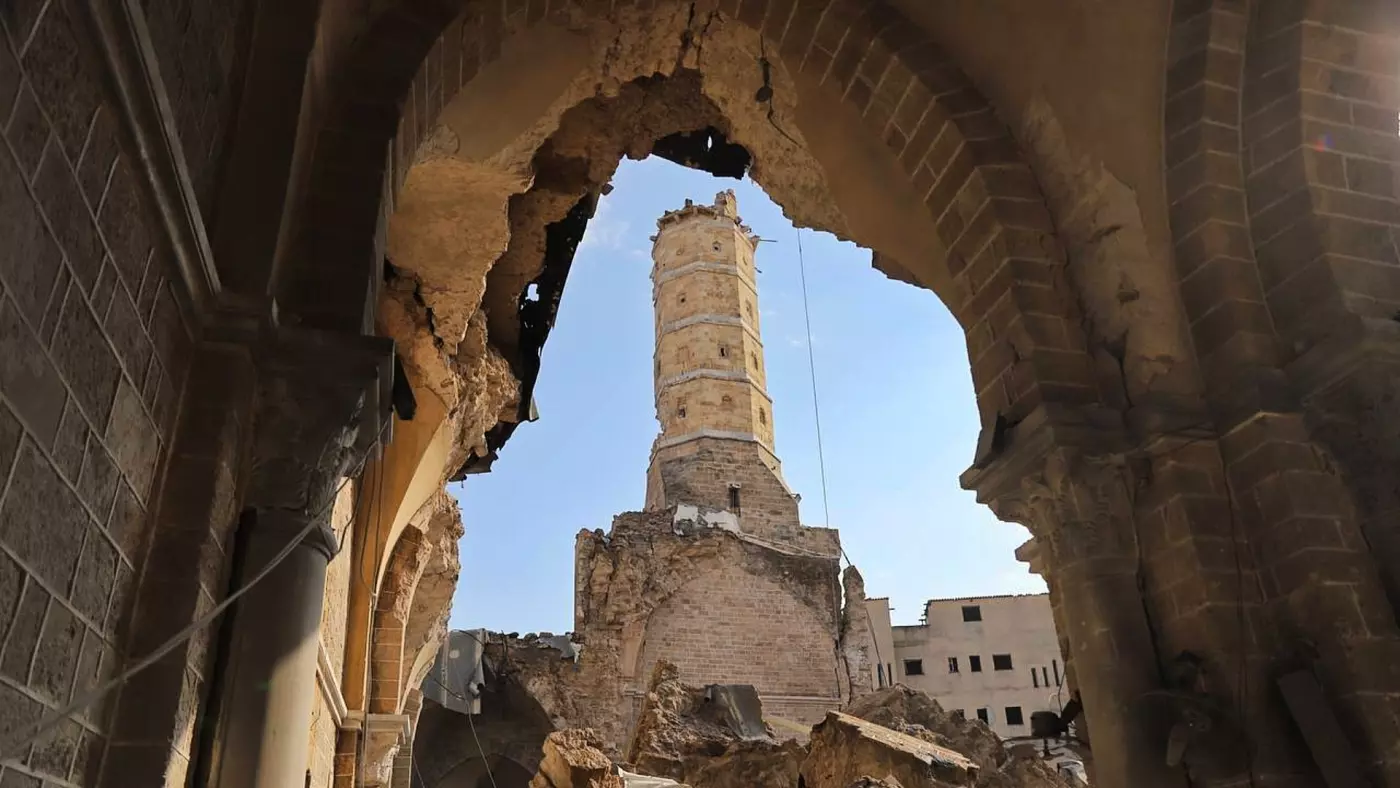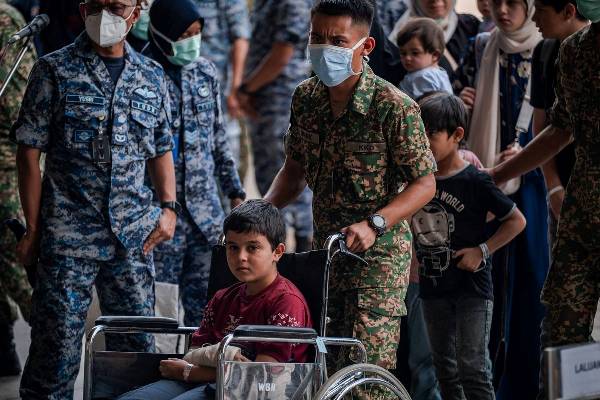The Green Line exists outside of the Israeli political mindset. National security policies do not end at this border, which Israel erases each day through its practices.
Several recent steps by Israeli authorities on both sides of the line – including the creation of a private police force in Beersheba, a warning that social media could be blocked in upcoming conflicts, and the installation of a remotely controlled crowd dispersal system in Hebron – show how Israeli military and civilian structures are the product of a single unified mentality.
Israeli forces are attempting to avoid international scrutiny and personal accountability for their ongoing violations against Palestinians
Starting with Beersheba, the city’s decision to pay private security companies to aid with policing, costing tens of millions of shekels a year, harkens back to former Prime Minister Naftali Bennett’s announcement this summer of the formation of a “civilian national guard” to fight “terrorism”. Bennett soon faded from the political scene, but his repressive legacy will continue to hang heavy over Palestinians.
A parallel apparatus to Israeli police, the national guard will include a volunteer component, raising questions about what type of oversight and accountability measures will be in place. Even for Israel’s official police force, accountability is sorely lacking; officers are rarely punished for the violence they unleash against Palestinian civilians.
Starting this month, the new security apparatus in Beersheba – which will reportedly be led by the municipality in cooperation with Israel’s internal security ministry – will be financed by the public. The programme will cost an estimated 27 million shekels ($7.6m) annually, and Palestinian Arab residents will be forced to shoulder part of that cost through their taxes.
Racism and aggression
The use of private police raises many concerns. During the May 2021 uprising, armed militias exhibited extreme racism and aggression, imbued with a general hostility towards the Arab presence and a skewed notion that Palestinian Arabs were the root cause of crime and chaos in the country.
Some recent reports claimed that the new Beersheba force will include members of Im Tirtzu, a non-profit that works “to strengthen the values of Zionism in Israel”. Along similar lines, the newly formed Israel Cities Association has a mandate “to strengthen community resilience and personal and public security in the cities involved”, and to prepare for “crises and security challenges”- a veiled reference to strengthening Jewish immunity against a perceived Arab assault.
In the aftermath of the May 2021 uprising, the association issued a report alleging that Palestinian leaders fuelled the conflict, placing much of the blame on the High Follow-Up Committee for Arab Citizens of Israel, an umbrella group for Palestinian citizens of Israel.
On the social media front, Israeli police commissioner Kobi Shabtai recently proposed that in the event of future violent confrontations, social media networks should be blocked. The state and its hostile apparatuses appear to be preoccupied with repressing Palestinians. At the same time, Shabtai’s comments represent a clear recognition of the triumph of Palestinian popular media and communications platforms over the racist Israeli media system.
Avoiding accountability
As for the third development, the remotely controlled crowd dispersal system in Hebron will allow for the automatic firing of stun grenades, tear gas and sponge-tipped bullets, according to a report in Haaretz. “The system, still in its pilot stage, was installed on Shuhada Street, over a checkpoint in an area that has served in the past as the focal point of demonstrations and clashes between Palestinians and Israel’s military,” the report notes.
For the Israeli military, this provides two essential things: the ability to preserve the lives of occupying soldiers by avoiding live confrontations, and the ability to quickly eliminate Palestinian resistance fighters at the touch of a button. It also serves as a deterrent for Palestinian youth, reinforcing the sense that they are being watched and monitored at all times.
Hebron is effectively becoming a laboratory where deadly technologies are tested on Palestinian civilians before their wider deployment across the country and beyond, through trade with regimes friendly to Israel.
All of the aforementioned moves are part of a coordinated strategy, in which Israeli forces are attempting to avoid international scrutiny and personal accountability for their ongoing violations against Palestinians.
While seeking to fragment Palestinians across Gaza, the occupied West Bank and the 1948 territories, Israel is trying to strike all of these fronts simultaneously to prevent their further integration. This affirms Israel’s desire for aggressive escalation. But a glimmer of hope remains for the Palestinian people, who despite their faltering political leadership, continue to defy and resist Israeli oppression.
Post Disclaimer | Support Us
Support Us
The sailanmuslim.com web site entirely supported by individual donors and well wishers. If you regularly visit this site and wish to show your appreciation, or if you wish to see further development of sailanmuslim.com, please donate us
IMPORTANT : All content hosted on sailanmuslim.com is solely for non-commercial purposes and with the permission of original copyright holders. Any other use of the hosted content, such as for financial gain, requires express approval from the copyright owners.
 Sri lanka Muslims Web Portal Sri Lanka Muslims News Center
Sri lanka Muslims Web Portal Sri Lanka Muslims News Center


 Donate
Donate


